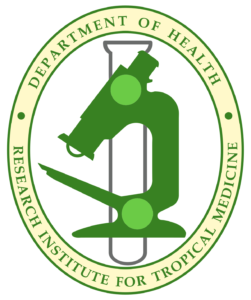A success story of Global-PPS in the Philippines
We interviewed Mari Rose De los Reyes, an infectious disease specialist at the Research Institute for Tropical Medicine (RITM) in Manila, the Philippines. Mari Rose coordinates the national Global-PPS in the country. This network has grown from 16 initial sites to 80 sites all over the Philippines.
 When and how did you start your collaboration with Global-PPS?
When and how did you start your collaboration with Global-PPS?
Mari Rose: It all started in 2017 when one of my colleagues mentioned the point prevalence survey (PPS) as a way to measure the effects of our AMS program in the country. At that time, we started the national implementation of the antimicrobial stewardship (AMS) program and were working on the national antibiotic guideline. With the support from the Department of Health and in close collaboration with bioMérieux, we had a two-day training in September 2017 and immediately after, in October, we started our first data gathering.
What does this collaboration entail?
Mari Rose: We have been using the Global-PPS protocols and adapted it to our own local setting. We encode our data into the Global-PPS database, which is based in Antwerp and we find it very useful and systematic. We didn’t have to “reinvent the wheel” so to speak. The forms are simple and there is a FAQ that we can always refer to when we have questions. Being part of the network of the Global PPS, we can compare our data with other regions and countries, and also with hospitals within the Philippines. In addition, the collaboration entails assistance in data analysis, manuscript writing and presentations in international conferences.
How is the situation regarding AMR in your country?
Mari Rose: In the Philippines, the trend in antimicrobial resistance is monitored by the antimicrobial resistance surveillance program that is based at the Department of Health, Research Institute for Tropical Medicine (RITM). Data from the different sentinel sites all over the Philippines are being collected, analyzed and published in an annual report. These data show the resistance patterns of different pathogens that are causing common infections in the Philippines. We see that the trend of antimicrobial resistance is either decreasing or increasing. To give you an example, for Neisseria gonorrhoeae our target is to maintain ceftriaxone resistance at zero percent. However, the recent report showed that resistance has increased from zero to 1.8%. Among other pathogens, like methicillin-resistant staphylococcus, the resistance pattern has decreased from 60% in 2016 to 46% in 2021. This is the beauty of monitoring: we can measure whether the programs have been effective or not and also to help us plan on the interventions.
What do you hope to achieve through the Global-PPS project?
Mari Rose: Through the repeated Global-PPS, we will be able to monitor the trend of antimicrobial prescribing, and other quality indicators that are useful in the implementation of our AMS program. We can use this to develop policies, both for hospitals and on a national level. For example, we were looking at antimicrobial prescriptions for surgical prophylaxis in a huge tertiary hospital in the Philippines. The baseline data showed that the documentation of surgical prophylaxis was low, but after the introduction of documentation policies, the review and stop date documentation of surgical prophylaxis prescriptions in that hospital increased to almost 100%. Now, we are developing policy briefs that will be submitted to the Department of Health and hopefully there will be a national policy for strict implementation and documentation of surgical prophylaxis guideline in all hospitals because this guideline is already in place.
About Mari Rose De los Reyes

Dr. Mari Rose A. De Los Reyes is an Adult Infectious Diseases Specialist. She took her fellowship training in Infectious Diseases at the Philippine General Hospital and Research Institute for Tropical Medicine. She was awarded a visiting scholarship in Research Epidemiology and Biostatistics at the Center for AIDS Prevention Studies at the University of San Francisco, California in 1991. She is a Fellow of the Philippine College of Physicians, Philippine Society of Microbiology and Infectious Diseases and the Infectious Disease Society of America.
In 2017, when she was President of the Philippine Society for Microbiology and Infectious Diseases (PSMID), an organization of Infectious Diseases Specialists in the Philippines she started the Global Antimicrobial Use Point Prevalence Survey in the Philippines. For her work, she received an award from the Global PPS, University of Antwerp, Belgium. She is currently the National Coordinator of the Global Point Prevalence Survey, Philippine sites
She is currently the Head of the Infectious Disease Section, Department of Medicine, Asian Hospital and Medical Center and the Medical Center Muntinlupa; Head of Infection Prevention and Control Committees in Medical Center Muntinlupa, Las Piñas Doctors Hospital, the Premier Hospital and Medical Center and the Las Piñas City Medical Center.
In addition, she is a researcher and has done studies on Tuberculosis, HIV/ STDs and Vaccinology and have published several papers in peer-reviewed scientific journals.
